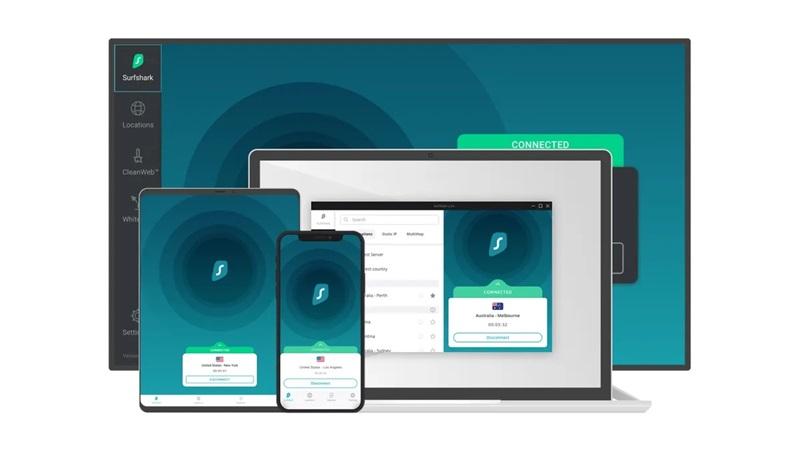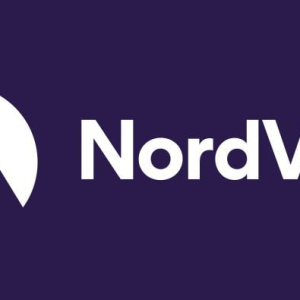When it comes to choosing a VPN service, Surfshark and ExpressVPN are two popular options that often come up in the discussion. Both offer a wide range of features and benefits to help users secure their online activities and access geo-restricted content. In this article, we will compare Surfshark and ExpressVPN to determine which one is better suited for your needs. From pricing and server locations to speed and security, we will delve into the key differences between these two VPN providers to help you make an informed decision.
- A Full Hotspot Shield VPN Review – Tested, Reviewed, and Compared for 2023
- IPVanish Review: Everything You Need to Know About IPVanish in 2023
- A Full Hola VPN Review – Tested, Reviewed, and Compared for 2023
- ProtonVPN Review: An In-Depth Look at Proton VPN in 2023
- A Full AtlasVPN Review – Analyzed and Compared for 2023
When comparing top providers like Surfshark vs ExpressVPN, choosing the best VPN service can be a daunting task. Both providers have a reputation for strong security features, fast connection speeds, and extensive global server coverage. So, how do you decide which one is the best choice for your needs?
You are viewing: Surfshark vs ExpressVPN – Which One Is Better?
In this comprehensive guide, we’ll explore what the providers offer, including their performance, privacy measures, and overall value proposition. By examining their strengths and weaknesses, we’ll provide you with all the information you need to make an informed decision. Read on as we put Surfshark vs ExpressVPN to the test and identify which is the better VPN service.
ExpressVPN vs Surfshark Compared
Before we go into detail about features, let’s briefly look at how Surfshark and ExpressVPN measure up across key categories:
| Surfshark | ExpressVPN | |
|---|---|---|
| Starting Price | $2.49/month (24 months) | $8.32/month (12 months) |
| Server Count | 3,200+ | 3,000+ |
| Server Locations | 100 countries | 105 countries |
| Max Devices Supported | Unlimited | 8 |
| Compatibility | Windows, Mac, Android, iOS, Routers, Chromebook, Linux, Browsers | Windows, Mac, Android, iOS, Routers, Chromebook, Linux, Browsers |
| Encryption | AES-256 | AES-256 |
| Protocols | WireGuard, IKEv2, OpenVPN | Lightway, OpenVPN, IKEv2 |
| Kill Switch | ||
| Split Tunneling | ||
| Double VPN | ||
| Security Tools | ||
| Money-Back Guarantee | 30 days | 30 days |
Surfshark vs ExpressVPN Pricing Compared
Winner: Surfshark
Surfshark and ExpressVPN offer various price points for their VPN services. This section compares the cost of each provider’s plans to determine which provider offers the best value for money.
| Surfshark | ExpressVPN | |
|---|---|---|
| Free Version | 7-day free trial on iOS, Android and macOS | 7-day free trial on iOS and Android |
| Starter | • $2.49/month (2-year plan) • $3.49/month (1-year plan) • $15.45/month (1-month plan) |
• $8.32/month (1-year plan) • $9.99/month (6-month plan) • $12.95/month (1-month plan) |
| Advanced | • $3.19/month (2-year plan) • $4.09/month (1-year plan) • $15.95/month (1-month plan) |
|
| Premium | • $4.97/month (2-year plan) • $6.49/month (1-year plan) • $17.95/month (1-month plan) |
When comparing Surfshark VPN prices to ExpressVPN, Surfshark generally offers more affordable plans across the board, especially with longer-term commitments.
The two-year starter plan at $2.49/month offers the lowest overall price. Surfshark also provides more flexibility with advanced and premium plan tiers, while ExpressVPN has a single all-inclusive paid plan. The lowest price for this is $8.32/month.
This makes Surfshark a strong choice for budget-conscious users who want a fully-featured VPN.
Neither Surfshark nor ExpressVPN offers a completely free plan. Surfshark provides a seven-day trial for its iOS, Android, and macOS apps, however, while ExpressVPN has a seven-day trial for iOS and Android.
Both providers offer a 30-day money-back guarantee with all plans, allowing users to test their services risk-free.
You can also check out our ExpressVPN review and Surfshark review for more details and analysis.
Surfshark vs ExpressVPN – Which of the VPN Providers is Safer?
Winner: ExpressVPN
ExpressVPN slightly outperforms Surfshark in terms of its security offering and server technology. In this section, we’ll take a closer look at the security features both providers offer, including their encryption standards, VPN protocols, and logging policies.
Encryption
Surfshark and ExpressVPN both use AES–256 encryption to protect your internet traffic. This is the same encryption cipher that is used by government agencies and cybersecurity experts worldwide for protecting classified information.

The 256-bit key length makes the encryption virtually unbreakable with current computing power. It would take billions of years for even the most sophisticated supercomputers to brute force the encryption keys. This ensures your data remains secure from hackers, ISPs, and other third parties.
Tunneling Protocols
When you connect to a VPN, your device communicates with the server using a tunneling protocol, which determines how your data is encrypted and transmitted.
Surfshark and ExpressVPN offer a selection of secure protocols for their users. The main difference between the two VPN providers lies in their adoption of the latest protocol advancements.
Surfshark offers WireGuard, a state-of-the-art protocol known for its speed and efficiency. ExpressVPN has taken a different route by creating Lightway, a proprietary protocol engineered to deliver optimal performance, security, and stability.
Both Surfshark and ExpressVPN continue to support OpenVPN. It’s open-source, widely trusted, and offers a great balance of security and compatibility. Both providers let you choose between UDP (faster) and TCP (more stable) variants of the protocol.

Both also support IKEv2, a fast and secure protocol that’s particularly well-suited for mobile devices. IKEv2 quickly reconnects when switching between networks, making it an excellent choice for users who frequently move between WiFi and mobile data connections.
Surfshark and ExpressVPN have both also discontinued support for the older PPTP and L2TP/IPsec protocols, as they can no longer ensure adequate security.
In terms of protocol selection, you can’t go wrong with either Surfshark or ExpressVPN, as both offer a robust lineup of secure and trusted protocols.
Logging Policy
ExpressVPN and Surfshark are both headquartered in privacy-friendly jurisdictions. ExpressVPN is based in the British Virgin Islands, which isn’t party to any intelligence-sharing agreements and has no data retention laws, so the provider isn’t legally required to store any user data.
Surfshark is based in the Netherlands, a country known for its strong privacy laws. Although the Netherlands is part of the Nine Eyes Alliance, it doesn’t have mandatory data retention laws for VPN providers, allowing Surfshark to maintain its strict no-logs policy without legal interference.
Both VPN providers have undergone independent audits to verify their no-logs policies. ExpressVPN had two recent audits – conducted by KPMG and Cure53 – which confirmed that the provider adheres to its privacy policy and documented the robust security of ExpressVPN’s TrustedServer technology.
Surfshark underwent a recent independent audit by Deloitte, which verified that its servers do not store any logs or data that could identify users or document online activity.
Although both VPN providers demonstrate a strong commitment to user privacy, ExpressVPN’s TrustedServer technology and its British Virgin Islands HQ give it a slight edge over Surfshark in this area.
Surfshark vs ExpressVPN – Key Features
Winner: Surfshark
When it comes to functionality, Surfshark is the better choice due to its ability to connect an unlimited number of devices and functionality like double VPN and GPS spoofing.
See more : A Full NordVPN Review: Tested, Reviewed, and Compared for 2024
In this section, we’ll take a closer look at the key features offered by Surfshark and ExpressVPN, comparing their server networks, device compatibility, security tools, and more.
VPN Servers

Surfshark has a larger overall server network, with over 3,200 servers, compared to ExpressVPN’s 3,000+. This means generally better load balancing, less chance of congestion, and faster and more reliable connections for Surfshark, as there are more servers to distribute user traffic.
When it comes to global coverage, ExpressVPN has the edge with servers in 105 countries, while Surfshark’s network extends to 100 countries.
Surfshark provides several types of specialized servers that ExpressVPN doesn’t offer. These include multi-hop (aka double VPN) servers, which route your traffic through two VPN servers for added security, and static IP servers, which give you a stable, consistent IP address.
Simultaneous Connections
Surfshark allows an unlimited number of simultaneous connections. This means you can use your account to secure every device you own, including smartphones, tablets, laptops, routers, and smart TVs.
In contrast, ExpressVPN allows up to eight simultaneous connections per account. While this is a higher limit than some other VPN providers offer, with many restricting users to five or six devices, it’s still a constraint compared to Surfshark’s unlimited offering.
Both Surfshark and ExpressVPN offer unlimited data on all their plans.
Kill Switch
A kill switch is an essential security feature that protects your online privacy by automatically disconnecting your device from the internet if the VPN connection unexpectedly drops. This prevents your online activities and real IP address from being exposed.
Both Surfshark and ExpressVPN offer kill switch functionality on all their apps. ExpressVPN’s kill switch, known as Network Lock, has a reputation for being reliable and consistent.

However, some users have reported occasional issues with Surfshark’s kill switch failing to block traffic when the VPN connection drops. While these instances seem relatively rare, they could potentially expose you and compromise your privacy.
Split Tunneling

Surfshark and ExpressVPN both offer split tunneling, a feature that lets you control which apps and sites use the VPN connection and which access the internet directly. There are some notable differences between the two providers in terms of platform support, though.
Surfshark’s Bypasser split tunneling feature is only available on Android and Windows devices. The only way to set it up for Mac users is by using a router that has Surfshark pre-installed and supports split tunneling.
On the other hand, ExpressVPN offers split tunneling for Windows, MacOS versions up to OS 11, released in 2020, and Android.
Security Features
Surfshark wins this round by providing a broader range of security features to safeguard your device from online threats. One standout feature is Surfshark’s built-in antivirus software, which scans your device for malware and helps protect your security.
Another notable security feature from Surfshark is CleanWeb, which can block ads, trackers, and malicious websites, providing a cleaner and safer online experience. CleanWeb can also help pages load faster and reduce data use by eliminating unnecessary content.

The provider also offers a private search engine in the Surfshark One and One+ packages. This gives you a more secure and private alternative to Google or Bing and minimizes tracking and data collection by search providers.
ExpressVPN focuses on enhancing the core VPN experience while offering a number of privacy tools. These include Threat Manager, which prevents apps and websites on your device from communicating with third-party trackers and malicious entities.
The provider also offers Keys, a password manager. This feature can securely generate and store strong passwords, making it easier to maintain good password hygiene across your accounts. In addition, ExpressVPN offers parental control tools, allowing users to block inappropriate content with the app.
Both providers also offer some more standard security features, such as protection against DNS leaks and support for perfect forward secrecy, ensuring your online activity remains private and secure.
Unique Features
Surfshark has a range of other features available and also comes out ahead of ExpressVPN in this respect. Surfshark’s Camouflage Mode hides the fact that you’re using a VPN, making your VPN traffic look like regular internet traffic.
The provider also offers a GPS override feature, also known as GPS spoofing, on Android devices. This allows you to change your device’s GPS location to match the VPN server location you’re connected to.
ExpressVPN, on the other hand, offers a Speed Test tool built into the app. This allows you to quickly test the speed and latency of different VPN server locations, helping you quickly find the fastest and most reliable connection for your needs.
Surfshark vs ExpressVPN – VPN Connection Speed Comparison
Winner: Surfshark
When it comes to speed, Surfshark has a clear advantage over ExpressVPN. We conducted prolonged, extensive testing, and Surfshark’s speed ran, on average, at between 70% and 75% of our baseline unprotected connection speed.

Surfshark’s upload speeds were even more impressive, ranging from 75% to 85% of the baseline. This is particularly important for users who frequently upload large files, engage in video conferencing, or participate in online gaming, as faster upload speeds ensure a smoother and more responsive experience.
ExpressVPN’s speeds were noticeably slower in our tests. While still fast enough for most online activities, it couldn’t quite match Surfshark’s performance.
Surfshark vs ExpressVPN – Ease of Use for Streaming, Gaming, and Torrenting
Winner: ExpressVPN
ExpressVPN offers a slight edge over Surfshark in terms of streaming, gaming, and torrenting performance thanks to its server network and some of the advanced features it offers.
Streaming
ExpressVPN offers user-friendly apps that make it easy to access and unblock a wide range of streaming services like Netflix, Hulu, Disney+, and the BBC iPlayer across different regions. The MediaStreamer Smart DNS feature, meanwhile, simplifies streaming on devices that don’t support VPN apps.
Surfshark is capable of unblocking most mainstream streaming platforms with ease and also supports Smart DNS. However, it may occasionally struggle with less popular or niche streaming services.
Gaming
See more : ProtonVPN Review: An In-Depth Look at Proton VPN in 2023
ExpressVPN has a large network of low-latency servers that are well-suited for gaming. Having a low latency means minimal delays or lag, ensuring responsive and seamless gaming experiences.
Its proprietary Lightway protocol offers fast connection speeds, which is ideal for gaming without performance issues.
Surfshark also provides low ping times, which are crucial for smooth gameplay. While Surfshark has a larger total server count, ExpressVPN’s network covers slightly more countries, with a handful of additional options for connecting to low-latency servers.
Torrenting
While neither provider offers dedicated P2P servers optimized for torrenting, their entire server fleets are P2P-friendly, meaning you can connect to any of their servers and start downloading torrents right away. You can also choose the server closest to your location for optimal performance.
In terms of download and upload speeds, Surfshark is faster overall, resulting in faster torrent downloads than ExpressVPN.
Downloading copyrighted content without permission can be considered a violation of intellectual property rights, and both Surfshark and ExpressVPN discourage the use of their services for illegal activities, including piracy.
Surfshark vs ExpressVPN – Compatibility
Winner: ExpressVPN
ExpressVPN takes the lead in terms of compatibility, offering a slightly wider range of dedicated apps compared to Surfshark. However, both ExpressVPN and Surfshark offer excellent compatibility across a wide range of devices and platforms.
Both providers support major operating systems for computers, tablets, and mobile devices, including Windows, macOS, Android, iOS, Linux, and Chromebooks, along with various browser extensions.

They also offer compatibility with popular router brands and firmware, such as Asus, D-Link, DD-WRT, Linksys, Netduma, Sabai, Tomato, and TP-LINK, allowing users to protect their network and connected devices.
Smart TVs and streaming devices like Apple TV, Android TV, Amazon Fire Stick, and Nvidia Shield are also supported by both VPNs. While neither provider offers dedicated apps for gaming consoles, they can be protected by setting up the VPN on a compatible router.
In addition to this, ExpressVPN offers a browser extension for the Brave browser and has its own dedicated Aircove WiFi router, which comes with ExpressVPN pre-installed. While convenient, the router doesn’t currently support other VPN apps, limiting users to ExpressVPN.
One significant advantage of Surfshark, however, is its ability to support an unlimited number of simultaneous connections, making it an attractive choice for users with numerous devices.
Surfshark vs ExpressVPN – Customer Reviews
ExpressVPN users often mention its ability to work seamlessly across different networks and locations, including restricted regions like China.
However, some customers have reported technical issues and connection problems with ExpressVPN. These include frequent disconnections, inability to access certain websites or apps, and VPN locations switching unexpectedly during use.
Users of Surfshark often note their satisfaction with the service, its affordability, and the quality of the customer support.
However, some users have reported difficulty with canceling subscriptions and obtaining refunds, even within the advertised money-back guarantee period. There have also been some reports of occasional issues with Surfshark’s kill switch, with users experiencing difficulties in ensuring the feature is working as intended.
Both Surfshark and ExpressVPN offer live chat support, and representatives from both companies are generally helpful and knowledgeable when answering queries. Based on customer reviews, Surfshark seems to have a slight edge in terms of customer service quality, with more users praising the support staff’s assistance.
Conclusion – Surfshark and ExpressVPN – Which is Best?
| Surfshark | ExpressVPN | |
|---|---|---|
| Price | Winner | |
| Security | Winner | |
| Features | Winner | |
| Speed | Winner | |
| Ease of Use | Winner | |
| Compatibility | Winner | |
| Customer reviews | Winner | |
| Overall | Winner |
After conducting an ExpressVPN vs Surfshark comparison and exploring the key features of the two providers, it’s clear they both have their strengths – and in several categories, they’re very evenly matched – but Surfshark ultimately comes out on top as the overall winner.
The right VPN for you ultimately depends on your needs and priorities. If security and compatibility are your top concerns and you’re willing to pay a premium, ExpressVPN may be the better option. But for most users, Surfshark offers unbeatable value.
Surfshark offers top-notch VPN protection with robust security features, impressive speeds, and easy-to-use apps and is available at a very reasonable price.
How We Review and Test VPN Services
To provide our readers with accurate and well informed recommendations, we tested 20 leading VPN services to find the best in the market. Our methodology consists of the following criteria:
- Security Features
- Privacy Policies
- Speed
- Compatibility
- Geo-unblocking
- Customer Experience
- Price and Value for Money
How to Choose the Best VPN Service
Choosing the right VPN service can be daunting, given the numerous options available. To make an informed decision, it’s essential to weigh up the factors that can impact your VPN experience. The most important points to consider when selecting the best VPN include:
Usability – The VPN should have a user-friendly interface that is easy to navigate, even for those who aren’t tech-savvy.
The best VPN providers offer apps with intuitive designs and simple connection processes, ensuring users can quickly and easily secure their internet connection without extensive training.
Compatibility – The best VPN services offer native apps for popular platforms such as Windows, Mac, iOS, and Android, as well as detailed setup guides for configuring their service for routers, allowing users to protect their entire network with a single connection.
Key Features – A good VPN provider will include important features such as strong encryption, a kill switch, and a no-logs policy across all plans, while advanced features like ad blocking, split tunneling, and multi-hop connections may be available on higher-tier plans.
Customer Support – The VPN should provide reliable and responsive customer support through multiple channels, such as live chat and email, as well as a detailed knowledge base.
The best VPN providers have knowledgeable support teams that can quickly and effectively address user concerns and technical issues. It’s worth looking at user reviews to get a sense of the quality and consistency of the support provided.
Value for Money – The VPN service should offer a balance of features, performance, and price that represents good value for money. Rather than simply choosing the cheapest option available, consider the best balance of features and cost for your needs.
FAQs
That’s a wrap on “Surfshark vs ExpressVPN – Which One Is Better?” We hope you’ve found a trove of useful insights and fresh perspectives. Your opinions and ideas matter to us—join the conversation below and share your take! Hungry for more tech insights? Dive into our diverse collection of articles where innovation meets practicality. Discover More AI Insights.
Stay in the loop with the latest in AI and tech – your journey into the digital future continues at techfuzzy.com.
#Surfshark #ExpressVPN
Source: https://techfuzzy.com
Category: Hosting & VPN





